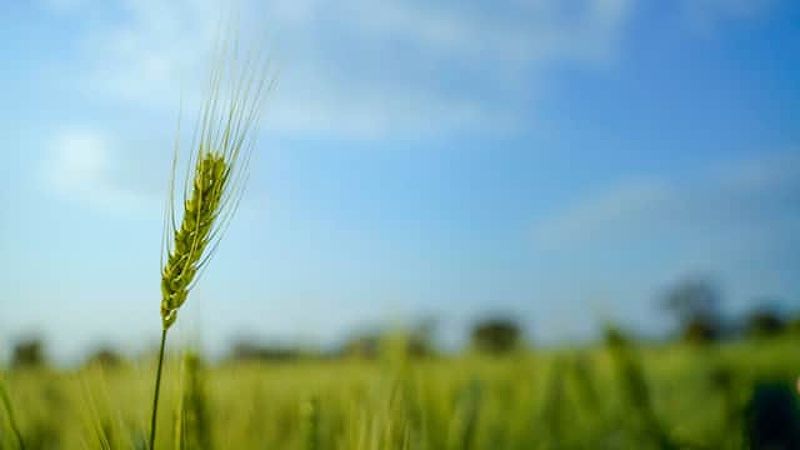Learn why organic farming is crucial for preserving the well-being and future of our planet. Discover how organic farming supports soil conservation, water preservation, and reduced carbon emissions. Explore the benefits for farmers and the growing market opportunities for organic produce.
- The Importance of Organic Farming for a Sustainable Future
- Conserving Soil Health Through Organic Farming
- Preserving Water Quality and Quantity with Organic Farming
- Reducing Carbon Emissions Through Organic Farming
- Benefits for Farmers and Market Opportunities
- Conclusion: Embracing Organic Farming for a Sustainable Future
The Importance of Organic Farming for a Sustainable Future
In the face of growing environmental concerns, the agriculture landscape is undergoing a significant shift towards sustainability. Organic farming, which embraces natural methods and techniques, is at the forefront of this change. By eschewing artificial fertilizers and pesticides, organic farming aims to build an environmentally sustainable system that addresses the urgent need for organic agriculture in the face of climate change and other challenges.

( Credit to: News )
Organic farming encompasses various techniques such as crop rotation, composting, and natural pest control, all of which are intended to maintain and improve the condition of the soil. These methods not only reduce the consumption of non-renewable resources like fossil fuels but also support biodiversity. By adopting organic farming practices, farmers can become guardians of the planet, protecting it and its inhabitants while also benefiting financially.
Conserving Soil Health Through Organic Farming
One of the significant advantages of organic farming is its ability to conserve soil. Healthy soil is essential for agricultural success, and organic farming prioritizes soil health through methods like crop rotation, cover and canopy crops, and minimal tillage. These practices replenish the soil’s structure, improve water retention, and promote microbial diversity, leading to healthier crops and increased resilience.
By adopting organic farming techniques, farmers can create a sustainable farming system that minimizes soil erosion, enhances nutrient availability, and supports long-term agricultural productivity.
Preserving Water Quality and Quantity with Organic Farming
Water preservation is another crucial aspect of organic farming. Unlike traditional farming methods that release chemicals into water bodies, organic farming provides an environmentally friendly alternative that supports aquatic environments. By reducing chemical use, organic farms can preserve water quality, protect aquatic habitats, and limit pollution. Additionally, organic farming promotes long-term water availability through measures like rainwater harvesting and groundwater recharge.
Through organic farming practices, farmers can contribute to the conservation of water resources, ensuring a sustainable water supply for future generations.
Reducing Carbon Emissions Through Organic Farming
In the face of climate change, reducing carbon emissions has become paramount. Organic farming plays a crucial role in this regard by implementing techniques that improve soil fertility and lower carbon emissions. Planting perennial crops, decreasing tillage, and cover cropping are some of the practices that organic farming encourages. Furthermore, efforts towards conserving existing forest covers and afforestation have a significant impact on absorbing carbon emissions.
By adopting organic farming methods, farmers can contribute to mitigating climate change and creating a more sustainable future for the planet.
Benefits for Farmers and Market Opportunities
Organic farming also offers numerous benefits for farmers. By promoting natural methods and strategies, it enables farmers to foster diverse soil ecosystems and helpful microbes, ultimately improving soil structure and crop health. This reduces the need for external inputs and lowers costs associated with expensive chemical fertilizers and pesticides.
Moreover, the increasing consumer interest in organic produce provides market opportunities for farmers practicing organic farming. Obtaining organic certification opens up exclusive markets for farmers, appealing to consumers who prioritize sustainable and health-conscious farming methods. This not only enhances financial incentives for farmers but also supports the growth of a sustainable food system.
Conclusion: Embracing Organic Farming for a Sustainable Future
In conclusion, organic farming is crucial for preserving the well-being and future of our planet. It fosters healthier ecosystems, protects biodiversity, and produces nutrient-rich crops, benefiting both human health and the environment. By embracing organic agriculture, farmers are not only emphasizing natural methods but also cultivating a more sustainable and environmentally friendly future for generations to come. In the face of rising concerns about climate change, adopting organic farming is not just a commitment to a healthy future but also a profound dedication to preserving the environment.
